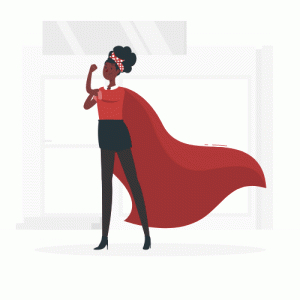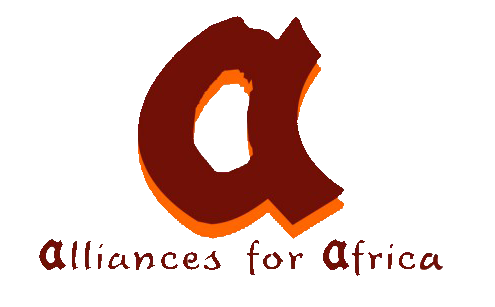International day for the elimination of sexual violence in conflict
In 2015 the United Nations adopted 19 June as the International Day for the Elimination of Sexual Violence in Conflict. The adoption of the day was aimed at raising awareness of the need to put an end to conflict-related sexual violence, to honor the victims and survivors of sexual violence around the world and to pay tribute to all who have courageously devoted their lives to and lost their lives in standing up for the eradication of these crimes.
It has become a prevalent practice especially in conflict and war-torn areas by militants and or security officials to weaponize sexual violence as a tactic of war, torture and terrorism to victimize already traumatized women, girls and those living with disability and sexually harass and molest them.
In Nigeria, reports are rife about how Boko Haram forcefully kidnapped school girls and turn them into sex slaves for their sexual gratification, instances are the Chibok and Dapchi school girls. This has created a serious gap for humanitarian response.
A paper written by Joe Read for Humanitarian Practice Network stated that, “The prevalence of sexual violence within the Boko Haram crisis has been widely reported in humanitarian assessments, human rights reports and media coverage from the early days of the insurgency. Boko Haram’s abuses against women and girls, including abduction, forced conversion to Islam, physical and psychological abuse, forced labor, forced participation in insurgency operations and forced marriage, rape, and other sexual abuse have inspired fear among local communities in north-east Nigeria and contributed to the group’s notoriety, both within the region and globally. However, while Boko Haram’s violence against women and girls has been at the center of public attention to the crisis, delivering protection and support for women and girls has been an ongoing challenge in the humanitarian response.”1
He further gave an insight on activities of Internally Displaced Persons, IDPs, staying as refugees in camp adding that they are also not exempted from the wiles of security operatives handed in their care to protect them, who in turn lure them with commodities as a ploy to abuse them sexually.
“In January 2016, three UN Special Rapporteurs visited Maiduguri in Borno State on behalf of the Office of the High Commissioner for Human Rights (OHCHR). There they found evidence of widespread sexual abuse and other major protection concerns affecting internally displaced women and girls. They concluded that ‘a protection gap is evident, especially in service delivery and access to justice’ for women and girls victims of Boko Haram’.+ This was not the first report of a protection deficit in the humanitarian response, nor the first report of sexual exploitation and abuse of displaced women and girls, but it was the first time that UN officials had pinpointed the coalescence of Boko Haram violence and sexual exploitation and abuse in displacement to create extreme vulnerability among displaced women and girls.
The prevalence of sexual abuse and exploitation of women and girls by civilian militias, members of the military and the national and state governments’ emergency management cadres has also been highlighted, including in a report by the UN Special Rapporteur for the Human Rights of IDPs following a visit to Maiduguri in August 2016.+ In October 2016, a Human Rights Watch report of sexual exploitation and abuse among IDP women and girls by camp officials led to the establishment of a committee to investigate allegations of trafficking and sexual abuse of IDPs. These reports and others have increased the profile of the unmet needs of vulnerable women and girls in north-east Nigeria, but the challenges experienced by the humanitarian response in providing prevention activities and support and services for survivors have continued”.2
Corroborating the statement above, Jennifer Ugwa’s report for Reliefweb reported that “Women make up more than 50 percent of the IDP population in Nigeria. And as they are forced to survive on less than ₦780 (US $1.90), their livelihoods are largely reliant on goodwill donations from charitable and government organizations. Consequently, due to overlapping vulnerabilities related to economic security and protection, many find themselves at risk of sexual and gender-based violence in the camps.
“Many of us [women and girls] came to the camp without children, but if you look around, plenty got pregnant and are now mothers without partners,” said Magdalene*, 19, a resident of Abagena IDP camp in Markurdi. Abagena is home to more than 8,000 IDPs, according to an official of the State Emergency Management Agency.
“Having been at the camp for the last four years, living among friends and peers who have been victims, Magdalene said the culture of silence instituted by the camp authorities has given rise to a generation of children born from rape.
“Attempts to retrieve data on reports of rape, harassment, or other forms of sexual abuse in Abagena were denied by camp staff. Rather, Magdalene said, incidents are settled in hushed tones. Victims are often threatened to stay silent or risk eviction – especially if the abuser is a camp official said Magdalene, given what she’s heard of the experiences of women who’ve left the camp for that reason.”3
The covid 19 pandemic did not make it any easier, the United Nations Population Fund revealed in a report that women and girls were hit hard by the menace especially in violence prone areas.
A March report covering 2020 found that women and girls were hit hardest by the triple crisis of conflict, displacement as a result of that conflict and COVID-19 and at heightened risk for sexual violence, exploitation and trafficking. The pandemic has impeded prevention, protection and treatment services efforts.
Conflict-related sexual violence exacts an unspeakable toll on a survivor, who is most likely to be a civilian and not a combatant. Even if hostilities cease, the scars are lasting. Sexual violence in conflict also threatens public health, security and peacebuilding. The costs of war are great; the cost of war against women and girls is incalculable. 4
Jennifer further revealed that, during the COVID-19 lockdown, “more than 3,600 rape cases were recorded across Nigeria and that could still be a gross undercount, given the lack of data on violence against women. Even before the pandemic hit, rape victims were less willing to report cases due to lack of faith in the country’s snail-paced legal system. But during the lockdown, though mobile courts were operating, cases of abuse especially sexual and domestic abuse were deprioritized”.5
Therefore, there is need for the Nigeria government and government at all levels to bring sexual crimes and sexual violence in conflict out of ‘the shadows’, punish perpetrators.
Domesticating the VAPP law in all states of the federation twill go a long way to help fast track punishment for perpetrators and protect everyone from all forms of violence as well as for the police to establish a gender desk in every station to handle sexual violence not with kids gloves but as a criminal offense.
A gender emergency: challenges to responding to the needs of women and girls in north-east Nigeria especially for those in gender-segregated camps.
References
1 https://odihpn.org/magazine/sexual-violence-and-the-boko-haram-crisis-in-north-east-nigeria/
2 https://odihpn.org/magazine/sexual-violence-and-the-boko-haram-crisis-in-north-east-nigeria/
3 https://reliefweb.int/report/nigeria/sexual-abuse-thrives-nigeria-s-idp-camps-no-recourse-victims
4 https://www.unfpa.org/events/international-day-elimination-sexual-violence-conflict
5 https://reliefweb.int/report/nigeria/sexual-abuse-thrives-nigeria-s-idp-camps-no-recourse-victims




Leave a Reply
Want to join the discussion?Feel free to contribute!